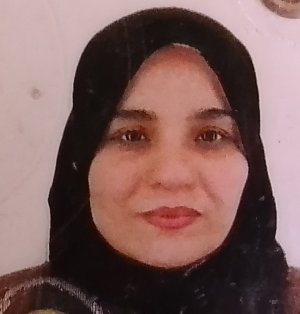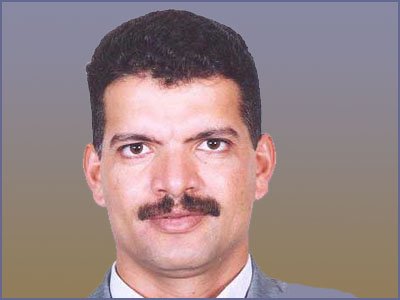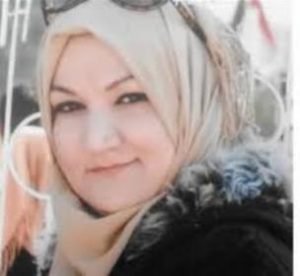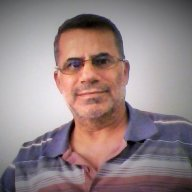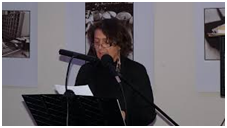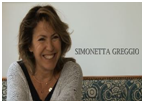The interview was conducted by Hadjira Bendjeddou Bendjeddou and was featured in the Arabic Narrative Anthology newspaper.
Literature always plays this very important role when society is afflicted with tremors that threaten its sovereignty, history, land, traditions, language, customs, and the security of its people. The condition of the people of Palestine has been like this for a hundred years and more. Therefore, writers, writers, and poets set out to write Palestinian history through poems, novels, short stories, plays, and children’s literature. Because the news and the numbers of martyrs, wounded, and missing will be consumed by the passage of years. And here comes the role of literature in order to immortalize events and incidents, restore to the names of the revolutionaries and leaders the patriotic luster of their actions, and restore national history to its glow once again.
The Deir Yassin massacre was numbers... and through literature, it became a national biography that talks about the village, the population, the number of martyrs, the destruction of homes, and what the Israelis did in mutilating the bodies of the martyrs, and the panic and fear that occurred that included all the homes of the village..
Yes, literature writes the history of the country as it confronts the oppression of the coloniser. Tolstoy wrote in his novel “War and Peace” the history of the Russian people’s confrontation with Napoleon Bonaparte’s army, and Vercor wrote the novel “Silence of the Sea” which talks about a form of French resistance on the day Germany occupied Paris in World War II. ...and there are many examples... Dozens of novels were written about the British occupation of South Africa, and Algerian writers wrote the biography of the French colonizer and his satanic practices on the one hand, and the biography of the Algerian people as they resisted. So Ibn Hadouqa, Kateb Yassin, and Al-Tahir Wattar wrote, and Wassini Al-Araj wrote the history of the country of a million and a half history of grandparents.
What the Algerian revolutionaries did, from 1954 until 1962, and even before this date (I mean what Emir Abdel Qader Al Jazairi did)... is the national and revolutionary mirror that the Palestinian people always look to in order to learn from it the plans and secrets of confrontation, and to learn the lesson from it. The most loyal and most beautiful patriot is not to neglect the homeland, no matter how great the sacrifices are, and no matter how long the time takes.
From the Algerian revolution, the Palestinians learned patience, courage, love of the homeland, and the ability to liberate it from the abomination of colonialism, and that there is no reassurance or a secure life except the expulsion of the colonizer and his return, defeated and defeated.
The Algerian Revolution was an example for all countries and peoples that gained independence after the victory of the Algerian Revolution.
The Algerian revolution said very clearly: People cannot be defeated...and this is a certainty supported by history.
The Algerians, with what they possessed, resisted the French army, which was one of the strongest armies in the world in the modern era, and they did not fear it, just as the Palestinians are now resisting an Israeli army, which is one of the strongest armies in the world in the modern era, and they did not fear it... All of this was demonstrated by the Algerian writers in their literary blogs. It is enough to read what Mufdi Zakaria, the poet who was wronged by life, and Al-Tahir Watar wrote...to know how the Algerians struggled until they gained their cherished independence, and the situation is the same among Palestinian writers...it is enough to read the poems of Ibrahim Tuqan, Abdel Karim Al-Karmi, Abdel Rahim Mahmoud, and Tawfiq Ziad. Rashid Hussein, Mahmoud Darwish, Samih Al-Qasim, Khaled Abu Khaled, and Moin Bseiso. It is enough to read the novels, plays, and stories of: Jabra Ibrahim Jabra, Ghassan Kanafani, Samira Azzam, Yahya Yakhlef, Rashad Abu Shawar, and Tawfiq Fayyad to know the importance of the Palestinian struggle.
The Algerians and Palestinians have derived a trench for cultural struggle that is parallel to their revolutionary trench.
The most dangerous thing is the conflict over the narrative adopted by both parties. Everything that the Israeli narrative says is false, allegations, false fabrications, and blatant lies. It is not supported by credibility, nor is it supported by logic. The Zionist entity.. is not a natural creation. It is a child created by British power. It is Today it is guarded by both American and Western power. It was born and created in the United Nations in 1948. It will disappear because it is a satanic outgrowth, and this is what the Israeli narrative jumps at and does not want to mention. The Israeli entity has been Judaizing everything since 1948. It has not succeeded, and it will not succeed. Jaffa will remain Jaffa and not Tel Aviv.. They steal everything and call it with Hebrew names, and are trying to create a history or a heritage for themselves.. And I cannot mention to the Israelis a history other than the history of massacres against the Palestinians, and no heritage except the heritage of stealing the heritage of others... from their star. To steal the Palestinian dress.
The Israeli narrative and the Palestinian narrative are a struggle between falsehood and truth, and between falsehood and truth.
Palestinian resistance poetry today has an important place in the Arab poetry blog because it preserved the history of the Palestinian revolution during 100 years of resistance.
The poetry of the Palestinian resistance became known for the Palestinian cause after it was translated into several international languages, and after it was written by Palestinian poets with great talents such as:
Abd al-Karim al-Karmi, Noah Ibrahim, Abd al-Rahim Mahmoud, Ibrahim Touqan, Mahmoud Darwish, Samih al-Qasim, Izz al-Din al-Manasra, and Ahmad Dahbour.. He studied this poetry in many Arab countries.
Since the novel “Memoirs of a Chicken” by Musa Al-Husseini... until the latest novel published today... Palestinian novelists have been writing Palestinian national history... and the history of the Palestinian revolution inside and outside the Palestinian homeland...
The Palestinian novel has preserved Palestinian customs, traditions, customs and dreams, and today it is one of the most important Arab narrative blogs, and its knights are many: Jabra Ibrahim Jabra, Ghassan Kanafani, Emil Habibi, Tawfiq Fayyad, Rashad Abu Shawar, Yahya Yakhlef, Atef Abu Saif, and Walid Al-Sharafa..
All the Arabs knew the heroic achievements of the Algerian people, most notably gaining independence through Algerian poetry, stories, plays, and novels. They knew the names of Algerian cities, towns, and battles from Algerian poetry, stories, and novels. This role was played by poetry and all genres of Palestinian literature, at home and abroad...and when it was translated. Algerian and Palestinian literature into international languages. Others knew the importance of the two peoples as they struggled against the occupiers, and the heroism that pervaded the Algerian and Palestinian geography.
The essential role of literature is to resist injustice and defend freedom and human values.
God willing, on other topics.
